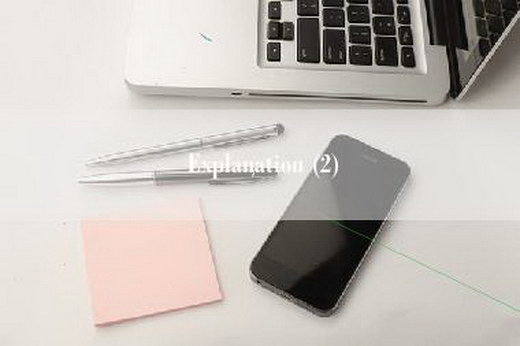Explanation: What It Is and How to Master It
Have you ever struggled to understand a concept or a process? Have you ever found yourself lost in a sea of jargon and technical terms? If so, you may need to improve your skills in explanation. In this article, we'll explore what explanation is, why it's important, and how you can become a master of it.
What Is Explanation?
At its core, explanation is the act of making something clear or understandable to someone else. It's a fundamental part of communication, whether you're teaching a class, writing a report, or simply having a conversation. A good explanation should be clear, concise, and tailored to the needs of the audience. It should also be accurate and based on reliable information.
Why Is Explanation Important?

Effective explanation is essential in many areas of life. For example, if you're a teacher, you need to be able to explain complex concepts in a way that your students can understand. If you're a scientist, you need to be able to explain your research findings to other scientists and to the general public. If you're a manager, you need to be able to explain your decisions to your team members and stakeholders. In short, explanation is a key skill for anyone who wants to communicate effectively and achieve their goals.
How to Master Explanation
Now that we've established what explanation is and why it's important, let's look at some practical steps you can take to improve your skills in this area.
1. Know Your Audience
The first step in giving a good explanation is to know your audience. Who are you explaining something to? What do they already know? What are their interests and needs? By understanding your audience, you can tailor your explanation to their level of knowledge and their specific needs.
2. Be Clear and Concise
One of the most important aspects of a good explanation is clarity. Your explanation should be easy to understand and free from unnecessary jargon or technical terms. It should also be concise, focusing on the most important points and avoiding unnecessary details.
3. Use Examples and Analogies
Examples and analogies can be powerful tools in explanation. By using concrete examples and relatable analogies, you can help your audience understand complex concepts more easily. For example, if you're explaining how a car engine works, you might use an analogy of a bicycle chain to help your audience visualize how the different parts of the engine work together.
4. Use Visual Aids
Visual aids can also be helpful in explanation. Whether you're using a whiteboard, a PowerPoint presentation, or a video, visual aids can help your audience see and understand complex concepts more easily. Just be sure to use visual aids sparingly and only when they add value to your explanation.
5. Practice, Practice, Practice
Finally, the key to mastering explanation is practice. The more you explain things to others, the better you'll become at it. Look for opportunities to practice your explanation skills, whether it's in a formal setting like a presentation or in a more informal setting like a conversation with a friend.
Conclusion
In conclusion, explanation is a fundamental part of communication and an essential skill for anyone who wants to communicate effectively and achieve their goals. By following the practical steps outlined in this article, you can improve your skills in explanation and become a master of this important skill. So go out there and start explaining!
本文转载自互联网,如有侵权,联系删除